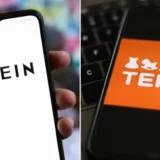Major Record Labels Sue AI Company Behind Viral AI Song
In a landmark legal battle that could redefine the music industry’s relationship with artificial intelligence, the Recording Industry Association of America (RIAA) and several major record labels have launched a lawsuit against two leading AI music companies. Universal Music Group (UMG), Sony Music Entertainment, and Warner Records have banded together to take on Suno and Udio, accusing them of massive copyright infringement.
The lawsuit centers on “BBL Drizzy,” a viral hit created using Udio’s AI technology. This track, which gained substantial online traction, has brought the contentious issue of AI-generated music to the forefront. Udio, alongside Suno—a company with a notable partnership with Microsoft Copilot—stands accused of using text prompts to generate songs that allegedly rip off copyrighted material on a large scale.
The complaint alleges that Suno and Udio have violated copyright laws “en masse” by producing original songs that mirror the style and substance of protected works. For the record labels, this lawsuit is more than just about “BBL Drizzy”—it’s about setting a precedent in the rapidly evolving world of AI music production.
Generative AI, which uses algorithms to create new content based on patterns learned from existing data, has been a game-changer in many fields, music included. Companies like Suno and Udio have capitalized on this technology, allowing users to create original music through simple text prompts. Suno’s collaboration with Microsoft, which integrates its capabilities into Microsoft’s suite of productivity tools, exemplifies the growing mainstream acceptance and use of AI in creative industries.
However, the music industry is pushing back. The record labels argue that these AI-generated tracks often bear uncanny resemblances to existing songs, infringing on the intellectual property of artists who spent years crafting their work. They assert that this practice not only violates copyright laws but also undermines the livelihoods of musicians and songwriters.
This lawsuit could have far-reaching implications. If the record labels prevail, it could lead to stricter regulations on AI-generated content, compelling AI companies to seek licenses or make substantial changes to how their algorithms operate. It might also prompt a broader debate about the role of AI in creative industries and the ethical boundaries of its use.
For now, the music world watches as this high-stakes legal drama unfolds. The outcome will not only impact Suno and Udio but could also shape the future of music production and the rights of creators in the digital age. The lines between human creativity and artificial intelligence are being tested, and the verdict could resonate far beyond the courtroom.






